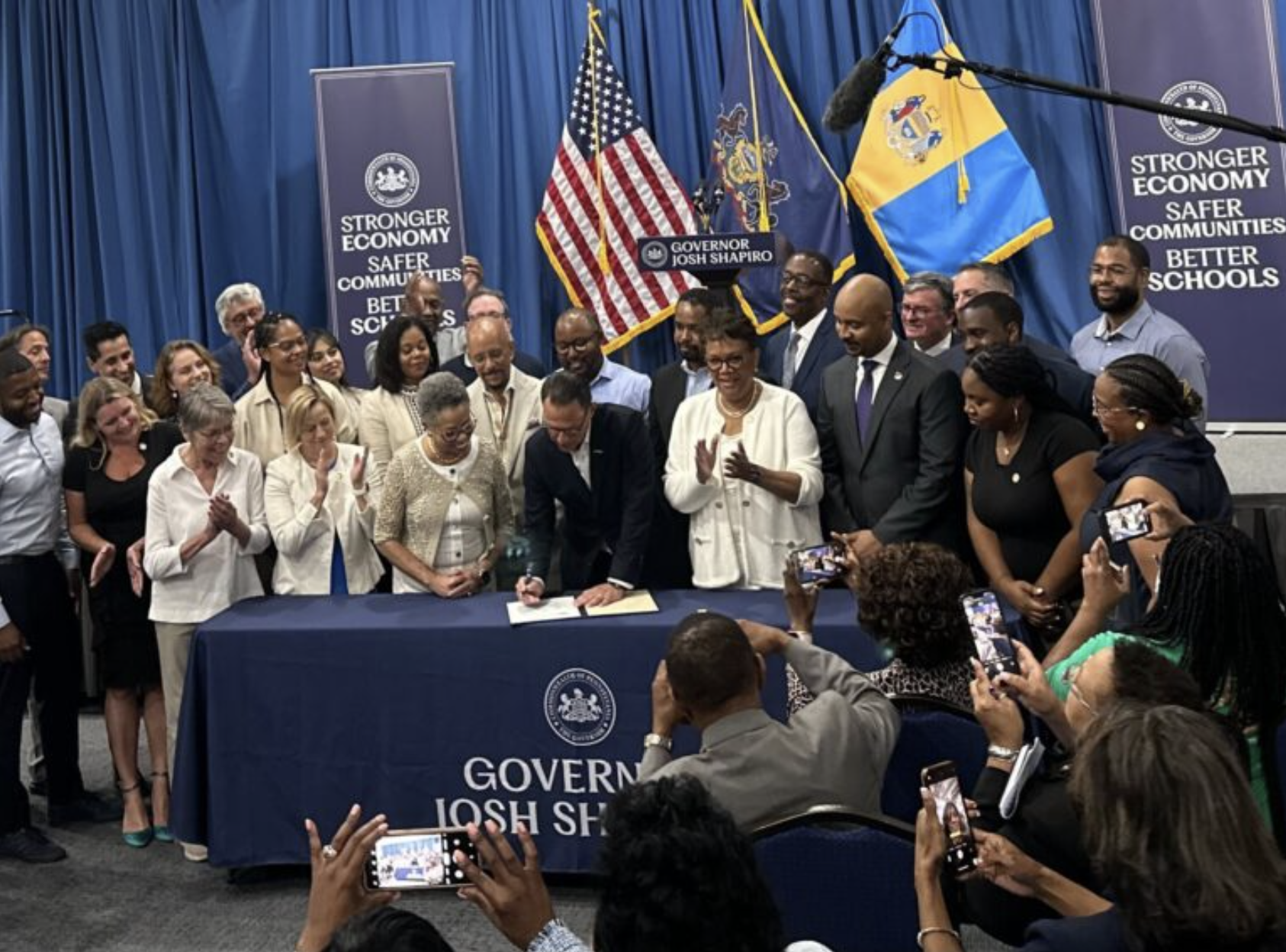New Pa. rules mean more small diverse businesses can win government contracts

Media Outlet
Kristen Mosbrucker-Garza
Dozens of business owners and elected officials gathered at The Enterprise Center on Tuesday afternoon to hear more about new rules that would open the door for more small and diverse businesses to prosper.
Gov. Josh Shapiro’s new executive order has four strategies to increase the share of state contracts among small, minority, and women-owned businesses across Pennsylvania.
For example, it’s more often that a small diverse business will be a subcontractor rather than the main prime contractor on government contracts — which means significantly less revenue for the small business.
New rules will require state agencies to award more prime contracts to small diverse businesses instead and there will be a public dashboard that shares progress every six months.
Pa. sets aside $43 million in its Small Business Reserve Designated Contracts out of its $4.2 billion spending budget. By contrast, Maryland set aside $430 million out of $5.2 billion in the same fiscal year for its Small Business Reserve Program.
State agencies must create a cohesive strategy to buy more goods and services from small diverse businesses.
The state is adjusting who qualifies as a small business to account for inflation by increasing the revenue cap from $38.5 million to $47 million because a company could be generating more revenue without growing its business due to higher prices.
Plus, a new business advisory board will propose more policy changes soon.
There’s also one thing that Gov. Shapiro cannot change with the stroke of a pen — increase the threshold for small business certification from 100 employees to 500 employees — which is the federal definition of a small business. It would require the state legislature to pass a new law.
In the meantime, it’s about getting more competition in the market, he said.
“So we’re setting aside more resources, we’re going to qualify more folks,” Shapiro said.
But when asked by WHYY whether there was a specific percentage of state contracts that would be a goal — Shapiro said no.
“I don’t believe in standing up in front of all these folks here and putting out a number that is a B.S. number just designed to make people feel good. I believe in tangible results and that’s what we’re going to be able to deliver with this policy,” he said.
That’s a different strategy than former Gov. Tom Wolf, whose administration set a goal that 26.3% of all state contracts would be awarded to small diverse businesses after conducting a disparity study.
In 2020, about 20.2% of state contract spending across Pennsylvania was awarded to small businesses, diverse small businesses, and veteran-owned businesses. Inside that figure, roughly half of that went to diverse small businesses alone.
In 2021, that shrunk slightly to 19% which means the state never hit the diversity goal.
In Maryland, the state struggled to meet its own minority and women-owned business contracting goal of 29% between 2013 and 2021 under then-Gov. Larry Hogan.
Several months ago, Maryland Gov. Wes Moore signed an executive order several months ago to mandate agencies report minority and women-owned business contracting and has made it a focus of his administration.
In Philadelphia, The Enterprise Center CEO Della Clark says that too often some communities are left out of the market and that access to capital is the best way small businesses can grow.
“I thought that you could train away the pain points for small businesses without capital. I thought you could cohort it away. Or you could incubate it away,” Clark said. “When you need capital and you need contracts, there’s no substitution.”











